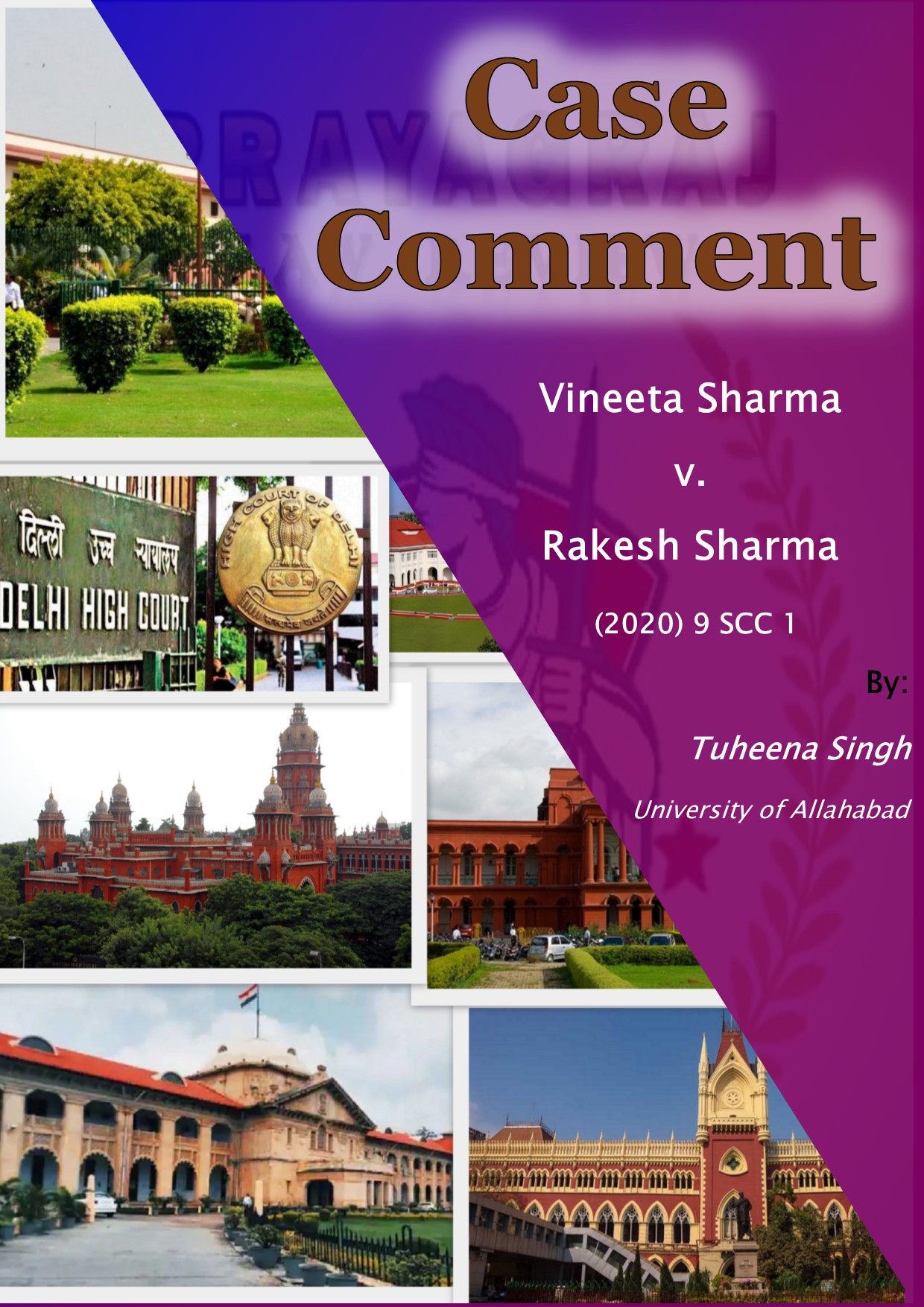VINEETA SHARMA V. RAKESH SHARMA: (Decided on 24 August 2020 by the Supreme Court in Civil Appeal No. Diary No. 32601 of 2018)*

प्रकाशित 2022-08-15
संकेत शब्द
- Ancestral property,
- Daughter’s coparcenary right,
- Succession, right to equality,
- Hindu Undivided Family, Retroactive,,
- Section 6 of the Hindu Succession (Amendment) Act, 2005
##submission.howToCite##
##submission.copyrightStatement##
##submission.license.cc.by-nc-sa4.footer##सार
The present case of Vineeta Sharma v. Rakesh Sharma[1] is in relation to the daughter’s coparcenary right in ancestral property under the Hindu Succession (Amendment) Act, 2005.
Prior to 2005, females were deprived of the right to inherit and own the property of Joint Hindu Family. The Hindu Succession Act, 1956 bases its rule of succession on Mitakshara law and laid down the ‘rule of survivorship’ – inheritance of ancestral property up to four generations of male lineage. The Hindu Succession (Amendment) Act, 2005 abrogated the rule of survivorship and replaced it with the rule of ‘testamentary’ and ‘intestate’, providing the daughters with coparcenary rights by birth as well. This amendment was based on 174th Report of Law Commission of India[2] which aimed to achieve constitutional objective of gender equality.
However, the question arose as to whether the provisions of this Act have retrospective effect or prospective effect? The same has been conciliated in this case.
